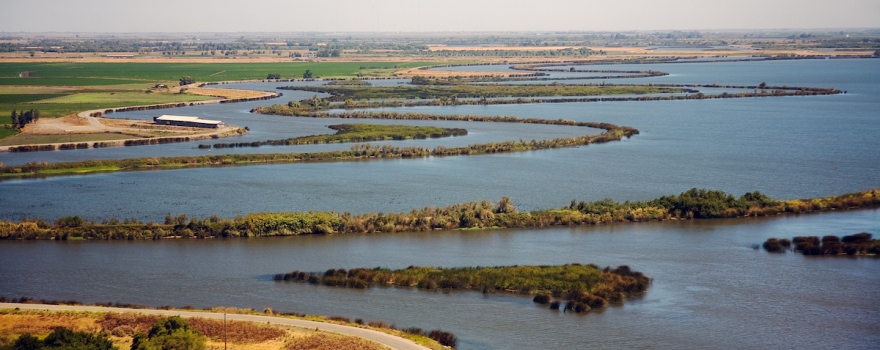 Board authorizes $10.8 billion for project to modernize state water delivery system
Board authorizes $10.8 billion for project to modernize state water delivery system
From the Metropolitan Water District:
The board of directors of the Metropolitan Water District of Southern California voted today to provide the additional financing needed for the full construction of the California WaterFix project to modernize the state’s badly outdated and increasingly vulnerable water delivery system.
The board authorized $10.8 billion for the project to build two tunnels under the Sacramento-San Joaquin Delta. The vote makes Metropolitan the primary investor in the project, which has a total estimated cost of $16.7 billion.
Metropolitan’s board took a similar vote in April. However following that action, two organizations sent a notice alleging violations of the Brown Act in connection with that meeting. Metropolitan responded to the notice disagreeing with its legal conclusion and provided documents in response to a related California Public Records Act request. But to ensure there is no question concerning the validity of the board’s consideration of, and its vote on, whether to authorize increased funding of California WaterFix, the board voted on the matter again today.
Metropolitan board Chairman Randy Record said the action was taken in an abundance of caution to ensure full public transparency. “California’s water delivery system is broken. After years of study, planning and environmental review, we finally have the solution. I am thrilled this project continues to move forward,” he said.
Today’s vote more than doubles Metropolitan’s initially planned WaterFix investment in WaterFix. In October 2017, Metropolitan’s board initially voted to participate in WaterFix and contribute up to 26 percent of its $17 billion cost, or about $4.3 billion. But the majority of federal agricultural contractors who also import supplies via the Delta have yet to commit to investing in the project, leaving part of the project’s costs unfunded.
In today’s action, Metropolitan’s board chose to help finance the full 9,000 cubic feet per second project, with the plan of recouping a portion of that investment from agricultural interests and possibly others once the project is completed.
“The board today recognized the environmental and water supply reliability benefits to Metropolitan’s service area of building California WaterFix. Now we will move forward to build the project on time and on budget to provide our region and much of the state with reliable and cost-effective water,” said Metropolitan General Manager Jeffrey Kightlinger.
California WaterFix will be paid for by the people and businesses that use the water it helps deliver via the retail water agencies and cities that serve those customers. Metropolitan’s financing of the full project is expected to cost Southland households on average up to $4.80 a month, though that average cost would be reduced to the extent that Metropolitan recoups some of that investment. Metropolitan will be selling or leasing capacity in the tunnels to allow water deliveries, transfers or exchanges for other parties.
About 30 percent of the water that flows out of taps in Southern California comes from Northern California via the Sacramento-San Joaquin Delta. But the Delta’s delivery system is outdated, its ecosystem is in decline, and its 1,100-mile levee system is increasingly vulnerable to earthquakes, flooding, saltwater intrusion, sea level rise and environmental degradation.
“The added challenge of dealing with climate change underscores the need to have more operational flexibility in the Delta,” Record said.
Attempts to help the Delta have led to regulatory restrictions that have reduced water exports from the region while the ecosystem continues to decline. California WaterFix will modernize the state’s water delivery system by building three new water intakes in the northern Delta and two tunnels that will provide high quality water and reduce impacts to fish. It also will contribute to the restoration and protection of up to 15,600 acres of critical Delta habitat as mitigation for ongoing construction and operational impacts.
Investing in WaterFix is consistent with Metropolitan’s strong commitment to local supply development and conservation. Imported water from the State Water Project helps replenish local groundwater basins, meet water quality standards and facilitate water recycling projects.
On Monday (June 9), Metropolitan launched a new Landscape Transformation Program through which residents and businesses can get cash rebates for replacing their thirsty grass with more water-efficient plants. Metropolitan also kicked off a multi-million dollar advertising and outreach campaign urging Southern Californians to conserve water 365 days a year.
——————————————–
Sign up for daily email service and you’ll always be one of the first to know!
- Sign up for daily emails and get all the Notebook’s aggregated and original water news content delivered to your email box by 9AM. Breaking news alerts like this one, too. Sign me up!
 Maven’s Notebook
Maven’s Notebook
constantly watching over the world of California water

